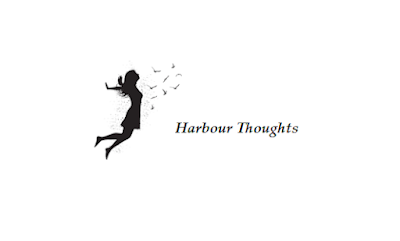Eagle and Salmon
By James McIntyre
Wilmot of fish culutre fame,
To this tale he lends his name,
A pair of eagles built their nest
On a lofty pine tree's crest.
And therein they regular rear
A brood of young year after year,
One day he saw one leave its nest,
When for food it was in quest.
It did wing its flight on high,
And then on water cast its eye,
When it quickly did discover
A great salmon in the river.
Like lightning flash down it doth sweep
And its talons it buries deep,
In salmon of enormous size
He trys to rise in air with prize.
But all in vain he quickly found
He could not carry thirty pound,
And had bit more than he could chew
For in the air no more he flew.
Wilmot he did gaze with wonder
At the spot where he went under,
Resolved to know what was the matter
He poled his boat o'er the water.
And he looked down and there he found
That the eagle it was drowned,
And its wings in part outspread,
But alas it was quite dead.
With grappling hook he drew him out,
But attached to him was monster trout,
Eagle could not extract his claws,
And this the death of both did cause.
Poem Analysis:
James McIntyre’s poem “Eagle and Salmon” tells a poignant tale of ambition, nature’s interplay, and the harsh realities of survival. Through the narrative of an eagle attempting to capture a salmon, the poem explores themes of ambition, the struggle for survival, and the often tragic consequences of overreach.
Structure and Form
The poem is structured in rhyming couplets, with a consistent AABB rhyme scheme. This format contributes to the poem’s rhythmic quality, making it feel like a traditional ballad or fable. The simplicity of the rhyme scheme mirrors the straightforward narrative style, allowing the reader to focus on the unfolding story and its deeper implications.
Characterization and Imagery
The central characters of the poem—the eagle and the salmon—are symbolic representations of power and struggle. The eagle, often seen as a symbol of strength and freedom, embodies ambition and a drive for survival as it leaves its nest in search of food. McIntyre describes the eagle’s descent with vivid imagery: “like lightning flash down it doth sweep.” This description not only highlights the eagle's speed and agility but also sets the stage for the tension that follows.
Conversely, the salmon represents both the bounty of nature and the challenges that come with it. The poem emphasizes the size of the salmon, noting it is “of enormous size,” which foreshadows the struggles the eagle will face. This contrast between the eagle’s ambition and the weight of its prey underscores the poem’s central conflict.
Themes of Ambition and Consequences
At its core, the poem explores the theme of ambition—specifically, the consequences of overreaching. The eagle’s desire to capture the salmon leads it into a perilous situation. The line “he tried to rise in air with prize” encapsulates the struggle of trying to achieve too much at once. The subsequent realization that “he could not carry thirty pound” serves as a critical moment of reckoning, illustrating the idea that ambition must be tempered with realistic expectations.
The eagle’s tragic fate—a drowning caused by its inability to release the salmon—acts as a cautionary tale about the dangers of unchecked ambition. The imagery of the eagle with “wings in part outspread” conveys a sense of helplessness and loss, further emphasizing the poem’s poignant message about the fragility of life and the harsh realities of nature.
Reflection on Nature
McIntyre’s poem also reflects on the beauty and brutality of nature. The interaction between the eagle and the salmon exemplifies the delicate balance in the ecosystem, where survival often hinges on the actions and decisions of its inhabitants. The eagle’s ambition and subsequent demise serve as a reminder of the cycle of life and death that characterizes the natural world.
Wilmot, mentioned in the opening lines, serves as an observer of this natural drama. His curiosity and determination to uncover the fate of the eagle add a layer of human connection to the poem. By poled his boat over the water to investigate, he represents the human desire to understand and connect with nature, even as it reveals its darker truths.
“Eagle and Salmon” by James McIntyre is a compelling narrative poem that encapsulates themes of ambition, struggle, and the unforgiving nature of survival. Through the vivid portrayal of the eagle’s attempt to capture a massive salmon, McIntyre invites readers to reflect on the delicate balance between aspiration and reality. The poem serves as both a cautionary tale and a celebration of nature’s beauty, highlighting the intricate relationships within the ecosystem and the lessons that can be drawn from them. Ultimately, McIntyre’s work resonates with readers as a poignant reminder of the consequences of overreach in the pursuit of one’s goals.
